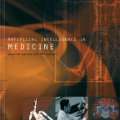With the increasing of model capacity brought by pre-trained language models, there emerges boosting needs for more knowledgeable natural language processing (NLP) models with advanced functionalities including providing and making flexible use of encyclopedic and commonsense knowledge. The mere pre-trained language models, however, lack the capacity of handling such knowledge-intensive NLP tasks alone. To address this challenge, large numbers of pre-trained language models augmented with external knowledge sources are proposed and in rapid development. In this paper, we aim to summarize the current progress of pre-trained language model-based knowledge-enhanced models (PLMKEs) by dissecting their three vital elements: knowledge sources, knowledge-intensive NLP tasks, and knowledge fusion methods. Finally, we present the challenges of PLMKEs based on the discussion regarding the three elements and attempt to provide NLP practitioners with potential directions for further research.
翻译:随着经过培训的语文模式带来的示范能力增加,出现了对知识更丰富的自然语言处理模式(NLP)的更大需求,这些模式具有先进的功能,包括提供和灵活使用百科全书和普通知识。不过,仅仅经过培训的语言模式就缺乏单独处理这种知识密集型NLP任务的能力。为了应对这一挑战,提出了大量由外部知识来源补充的经过培训的语文模式,并正在迅速发展。在本文件中,我们的目的是通过解开其三个关键要素:知识来源、知识密集型NLP任务和知识融合方法,总结经过培训的、基于培训的、基于知识强化的、基于知识的、强化的、基于知识的、基于知识的、强化的三种模式(PLMKEs)的模型(PLMKEs)目前的进展。最后,我们根据关于这三个要素的讨论,提出人文、并试图为国家语言平台的从业人员提供进一步研究的潜在方向。




